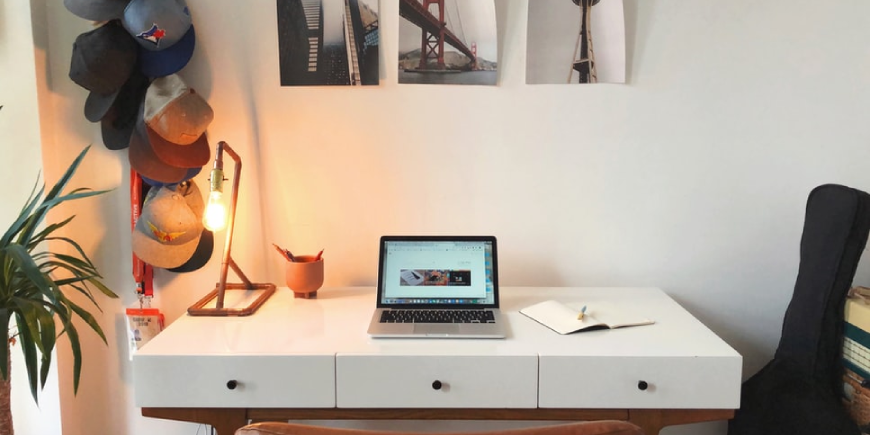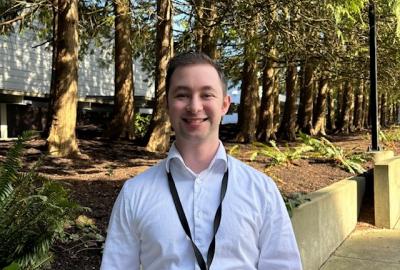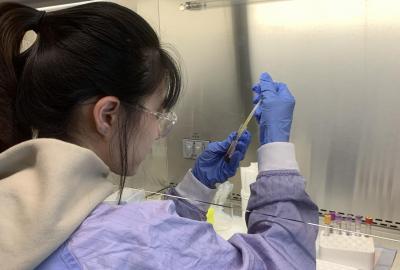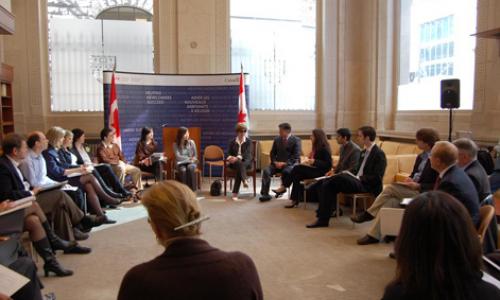
This was my second co-op semester and it started off similar to my first, but little did I know that this work term would be completely different. I work at Vancouver Coastal Health on the Clinical & Systems Transformation (CST) project. CST is a joint project between Vancouver Coastal Health, Providence Health Care, and Provincial Health Services Authority, which includes implementing common standards and systems across these 3 health organizations. Having already had experience in an office environment, things went smoothly as I picked up my work tasks in stride. There were some new skills I had to learn, but for the most part, I did not have too much difficulty adjusting to work instead of school. The first couple of months on the job flew by compared to what was to come.
A Period of Uncertainty
Along with everyone, I watched as the number of cases of COVID-19 rose, slowly at first then faster and faster. Earlier on, I was not so concerned about the state of the world but rather my individual safety and the safety of my family and friends were more important. I relied on public transit for transport to and from the office and riding a packed train car with hundreds of other people seemed like a great way to get sick. It was not long until every cough or sneeze in public was met with glares of suspicion from anyone around. I knew that if I contracted the virus, I would be putting my family at risk as well. Before long, however, Italy, among other places, was getting hit hard and they had just locked down areas in the Northern part of the country. I began to wonder about the fate of Canada as governments around the world stepped into action. I went from being skeptical about the virus having a severe impact on life here in Vancouver, to being uncertain of what life here might even look like. Then measures were put into place here as Vancouver’s cases continued to grow. Sports were cancelled, events postponed, and businesses began shutting down. Then I received an email telling us to work from home effective immediately.
Easing the Transition to Working From Home
With limited work experience, I had only worked from home a handful of times before this. Suddenly I was thankful that I bothered to get my remote access set up for work when I started, instead of having to wait on hold all day for IT. I was used to having in-person contact with my coworkers, but this job had actually helped to put me in a position to succeed in transitioning to working from home. Many of the members of my team worked remotely at least half the time, from cities across North America. This meant that Skype calls were already the main form of communication I used to connect with most of the members on my team. The often-remote nature of my team members allowed me to be able to coordinate with others primarily through online means already, even before the quarantine. My position also requires that I communicate with people outside of my organization through emails and teleconferences. This job had been preparing me to work in a remote situation without me even noticing it, since much of my work involved interacting with others already working remotely. Before working from home the level of supervision I had was roughly similar to the level I have now, where I work largely independently and am expected to stay on top of my work. The workflow remains similar as well, because I do most of my work independently and communicate through Skype or emails when needed, much like I did even before working from home. To help ease my transition further, I still wake up for work hours, and get dressed as if I was going to work (if every day was casual Friday). My routines and work patterns simply have not changed much because while working at the office I was following patterns similar to the ones I use now working remotely. This allows me to retain roughly the same level of productivity that I had when working at the office.
A Semblance of Normal
The possibility of a pandemic effectively shutting down countries and life as we know it, was something I had read about, but foolishly never expected to happen anytime soon. I was lucky to still have a job, as many people were laid off, and luckier still to be able to afford to practice social distancing. At first, hanging out in large groups was discouraged, and so I thought only being able to see a friend every now and then seemed manageable. Then, health officials advised that any contact with others outside of your own household should be avoided when possible. In my first co-op semester, I had time with friends to take my mind off work and relax. Now, work takes my mind off the current state of things and provides me with some semblance of normal. Even then, sometimes I find myself questioning what day of the week it is, as I am literally looking at my schedule for today on my work calendar.
I do my best to keep the same routine as I would if I was going in to work at the office. Walks and bike rides help keep me active, now that I can no longer play sports with my hockey and rugby seasons cancelled for now. Music is a large part of my life, both in producing songs and attending concerts with friends. Now that the latter is not an option, I still try to watch whatever concerts or shows that are posted online while in a call with friends. The quarantine has forced me to find different ways to connect socially with those around me, other than simply playing Call of Duty. Being in quarantine reminds me of the importance of my friends to me, since I’m unable to spend time together with them. It’s a lot easier now to lose touch with others and I have to make more of an effort to interact with people in order to remain close with them. I think everyone feels some sense of loneliness being in isolation and the fact that we know we’re all feeling this makes us remember that we are not so much alone, as we are apart. I came across an idea in a video where you and your friends or family prepare a slideshow that someone else must present, but the presenter can’t know the topic of the slideshow prior to the presentation. Before quarantine, I would not have considered creating and presenting slideshows was not exactly one of my interests, but now, here I am trying to think of a topic for a PowerPoint.
Beyond the Blog
-
For more opportunities like Ethan's, visit SFU's Health Sciences co-op page!















